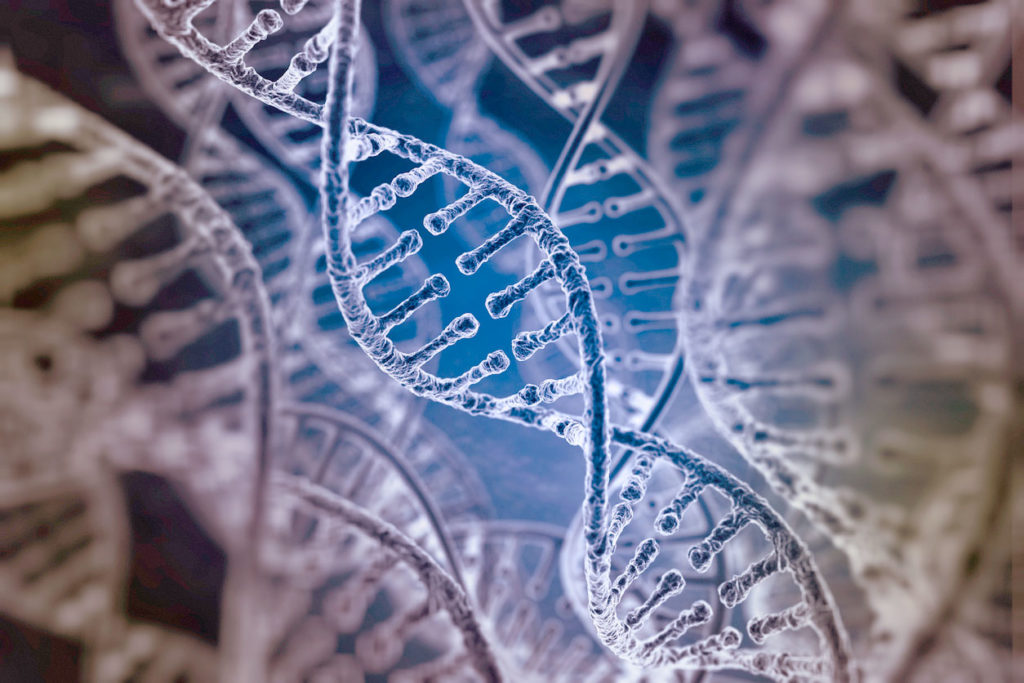
I recently hit the streets of Calgary with a microphone and a recording device and asked a few questions of whoever would take the time for a complete stranger, one question being, “Does God exist?” Almost without fail the answer was a resounding “… Maybe.” Old men in the sky with beards (thanks, Zeus) – not a chance; a higher power, however … yeah, probably. Jesus? Nah, a dude can’t be God – didn’t we just talk about Zeus?! To ask this question, one must ask it pointedly and precisely … just who are we trying to convict as guilty of existing here? If there’s no suspect to perp-walk into a courtroom, then how can evidence be mounted by the prosecution, and if no evidence then how could we even answer the question? So perhaps we could rephrase the question … How about, “Does the self-existent, eternal, maximally great being as conceived of in orthodox Christian theism, exist?” Ah, rolls off the tongue, doesn’t it?
In the past 80 years there’s been a corollary in the rise of what are called “evidentialist” apologists and huge scientific breakthroughs towards answering the question, “Does God exist?” The former are Christians who defend the truth claims of Christianity by furnishing evidence to support them, specifically from the physical sciences but also from historical and ancient textual studies; the latter are, well, scientific breakthroughs. Now, if it’s not obvious as to why the correlation exists, allow me … The more science discovers about our world, the more the Bible looks right all along. Robert Jastrow, a self-avowed agnostic on the whole God debate, wrote a book called God and the Astronomers wherein he described the relationship above in this way:
“For the scientist who has lived by his faith in the power of reason, the story ends like a bad dream. He has scaled the mountains of ignorance; he is about to conquer the highest peak; as he pulls himself over the final rock, he is greeted by a band of theologians who have been sitting there for centuries.”
The more science discovers about our world, the more plausible the biblical conception of reality becomes, or as Arno Penzias – who won the Nobel Prize for detecting the cosmic microwave background radiation (for making solar system sized Orville Redenbacher) – once said, “The best data we have [concerning the Big Bang] are exactly what I would have predicted, had I nothing to go on but the five books of Moses, the Psalms, and the Bible as a whole.”
Everything That Begins to Exist Has a Cause

People like William Lane Craig have for decades now given Christians of all kinds the confidence they were hoping existed in the belief in God through the cosmological argument: Everything that begins to exist has a cause; the universe began to exist, therefore the universe has a cause. It’s hard to believe someone has spent decades using, defending, and trouncing opponents with those 19 words – but, hey, if the shoe fits, win the argument with it … or something. But seriously, everything that begins to exist has a cause. The whole of the scientific enterprise is built on this premise it seems; can we expect anything to begin to exist, come into existence without a cause? The universe began to exist, as mentioned earlier … uh, yup, that’s where the science leads us. Then the logic leads us invariably to the conclusion that the universe had a cause. But wait – isn’t our perp supposed to be God? Who’s this “Cause” you’ve just trotted out before the jury?
Well, Craig goes on to analyze this cause. “What would this cause have to be?” he asks. Oh me, pick me, me, me, as I strain my arm almost out of its shoulder to be seen …
“Alright, Sterling, go ahead.”
This cause would have to be immaterial since material was created at the moment of the Big Bang – actually, throw in space-less and timeless as well, since those were also created at the Big Bang; it would have to unimaginably powerful and also personal as well.
“You’ve listened to a few of my debates, I take it.”
Yes, sir, it’s a pastime.
“Well, tell me why it has to be personal, then.”
Well, you see, if the cause was eternal, as we have seen it has to be, then the effect, the universe, should also be eternal. But we know that the effect isn’t eternal, so the cause must have agency, choice to actuate, or to use the more biblical jargon, create.
“Well done, Sterling.”
(Fan boy daydreaming now over.)
But people like Stephen C. Meyer and the Discovery Institute are also making the case for a cause beyond this natural world as they look at the information-bearing properties of the DNA molecule, for example. The more we find out about “high tech in low life,” as he calls it, the more plausible it becomes that a “D”esigner is at work. The DNA molecule is quite simple, you see – a sugar phosphate backbone and only four different nucleotide bases represented by the letters ACGT, and simple everyday chemical bonds keep the whole thing strung up in the double helix we all know and love. It’s no more difficult to explain or comprehend than, say, fridge magnets stuck to a fridge – a few parts, a few fundamental forces at work to hold it together, and voila – the molecule that codes for all of life. Wait, the defense is making a pretty good case here that God need not exist for DNA to … so, what’s the point exactly? The simplicity of the DNA molecule cannot explain the arrangement of its constituent parts any more than the magnetism of the fridge magnets can explain why they are arranged to say “I love you – Mom.” But again, that’s just the first problem. A second would be even if you could access the right alignment of DNA by chance (which Douglas Axe argues against, successfully, in his seminal book Undeniable), all you would get is proteins. But proteins need to be arranged into tissues, tissues into organs, organs to body plans – and for this DNA is necessary, but not sufficient. It turns out, as science progresses, that there is other informational systems in our bodies, namely, epigenetic information, a type of information to which natural selection has no access.
God is looking more and more guilty of existing, and yet we as the jury, “haven’t seen Him, at any time…”
For the possibility of these arguments to be carried through, and for sermons like the one Pastor James “preached flawlessly” last weekend, according to Ken Nickel, Associate Professor of Philosophy at Ambrose University, this recent science needed to be done. But in the Q&A after the services, one astute and perhaps cheeky young man asked this question: “What happens to our confidence in belief in God if it’s built on science, which has, can, and does self-correct itself and improve upon itself all the time?” Well done, sir, well done. The young scholar identified a danger in putting all our trust in science to “prove” God’s guilt of existence … because, after all, a couple hundred years ago we thought the universe had no beginning, or that the basic building block of life, the cell, was an “undifferentiated blob of protoplasm” and certainly not, as Bill Gates put it, “far, far more advanced than any software ever created.”
Now in the presence of Professor Nickel and the scholarly Reverend James Paton, I didn’t say too much (read: anything), but here is what I would have said: First, the science being discussed isn’t highly speculative or in danger of being overturned; and secondly, the arguments the church and theist thinkers have used for the past 1500 years before all this business about science are as strong today as they were when argued in full togas.
What Exists Points to a Maker

The Bible tells us in many places – and I love the Word, so let me list them:
… OK, I’ll stop – that what is made points to a Maker. It seems the Bible tells the jury the very fact that they have fingers to point means they should point them to the guilty party. Can it be that simple? Can we just take a look around and infer that God is in fact guilty of existence? Let’s try … And you can’t see me right now, but for me to try I have to speak ancient Greek, put a white robe on, and grow a beard … Just call me … Shmaristotle.
I have a cup of coffee beside me … It used to be to hot too drink, but now I’m slurping it back as fast as I can in order to make sense out of this article. But it sits two and a half feet off the ground … How? Because it’s sitting on the table – but what is holding that table up? The floor … and that? Well, the foundation of the building … Keep going … OK, that’s held up by earth – there we go! What we have just discovered is a hierarchical causal series (sorry, disclaimer – please do vocal warm-ups so as to not sprain your tongue on these words).
The beauty of Craig’s cosmological argument is that it traces everything back to a beginning point and asks, “How come?” But the beauty of the mind experiment above is that it traces reality right here and now up to the anchor that holds it all together here and now, regardless of whether or not the science that might seek to overturn the Big Bang (which really isn’t likely) succeeds. If we examine our world, we see that it is being held together right here and right now. Yes, we can look backwards in time to see how we got here, and draw out theological implications therein, but we can also look “downward,” if you like, to see how we are sustained in every moment of our existence. My coffee is where it is because of a causal series in which every member of that series is keeping it together; my coffee is what it is, you are what you are, the universe is what it is because of a similar series. The coffee remains coffee … well, water, anyway (especially if it’s decaf) … because of the chemistry of water, which is being held up by particle physics, which is being held up by …
Those “old guys” who used this argument for 1000-plus years imagined this argument like a stone being pushed by a stick which was controlled by a hand. The stone had no power to move on its own; it only derived its power to move from the stick, but the stick likewise had no power outside of what the hand gave it. The point here is that when you follow the chain of causes down the line you must, in principle, arrive at a cause which has the power to give the rest of the members of that chain (physics, chemistry, and so on) the power to do what they do.
And here again we have arrived at some “unnamed God … in whom we live and move and have our being” … I can see it now – the judge has lifted the gavel, and is ready to strike – if only he could find the name of the dang defendant to know whom to charge with existing.
At the beginning of the article I changed the question from “Does God exist?” to, essentially, “Does the God of Christianity exist?” I did so because if the above arguments and others like it carry through, this would exclude certain other conceptions of God. Mormonism, for example, imagines an endless chain into the past of men becoming gods, giving birth to more men becoming gods and so on; but the former arguments for God’s existence are also quite destructive to that conception of reality. The un-moved mover argument (heretofore known as the coffee argument … mmm, wake-up juice) also shows, though I left it out (you’re welcome) that there in principle can only be one un-moved mover; but classical Hinduism, say, imagines many movers, so these arguments militate against their conception of reality as well.
What’s Your Verdict? … Does God exist?
If it were you on the jury, and evidence like this were presented, evidence that demanded a cause for the beginning and the right now of existence, a cause that is eternal, ultimately powerful, one intelligent beyond comprehension, and so on, would you not want to point the finger at the defendant and exclaim with ease, and mild frustration that it’s even a question, “We the jury find the defendant guilty on all counts of existing”?
Speaking of pointing fingers, about 2500 hundred years ago Confucius famously said, “When the wise man points at the moon, the idiot looks at the finger.” Are not the “things that are made” merely fingers pointing at their Maker? Sadly today we have taken to looking only to the finger and seeing no defendant there, but only a finger [duh], when we should be looking at where the finger is pointing – the guilty party.
500 years before Confucius it was David who spoke in the same manner: “The fool says in his heart, ‘There is no God.’”
 Are we fools to reject God? The Bible seems to indicate either that or we are just “suppressing the truth in selfishness, desiring to be our own god” (my paraphrase of Romans 1:18). I’m not sure which is worse. I don’t mean to be crass or insensitive; I mean to be loving and urgent. I understand why there is doubt, the Bible understands why there is doubt, but it asks us to accept the overwhelming evidence for God’s existence in the midst of that doubt, and keep looking at the moon instead of becoming distracted with the finger.
Are we fools to reject God? The Bible seems to indicate either that or we are just “suppressing the truth in selfishness, desiring to be our own god” (my paraphrase of Romans 1:18). I’m not sure which is worse. I don’t mean to be crass or insensitive; I mean to be loving and urgent. I understand why there is doubt, the Bible understands why there is doubt, but it asks us to accept the overwhelming evidence for God’s existence in the midst of that doubt, and keep looking at the moon instead of becoming distracted with the finger.
You have been summoned, sequestered, and served with all the evidence; the take-out has been consumed, bathroom breaks all done, fresh coffee in your mug. You’re one of 12; what’s your verdict?
Written by Sterling Hunter
For more on this topic, check out Pastor James’ message on “Is there a God?” from May 19/20, 2018. Have more big questions about God, the Bible and Christianity? Join us as we continue in our “Explore God” weekend series, Saturdays 6:30 pm / Sundays 9:15 & 11:15 am until the end of June.



